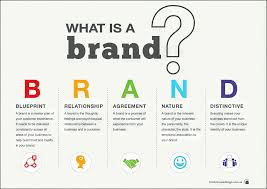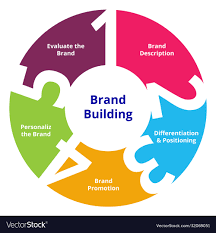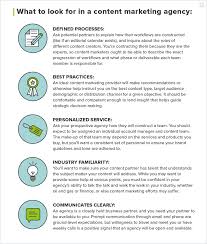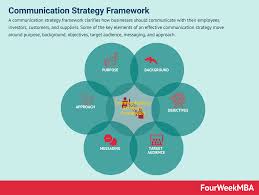Strategic SEO Leadership: How Executives Drive Business Success Online
The Role of SEO in Executive Leadership
In today’s digital age, search engine optimization (SEO) has become a critical component of any successful business strategy. While SEO is often associated with marketing and web development teams, its importance extends to executive leadership as well.
Executives play a key role in setting the strategic direction of a company, and understanding the impact of SEO can significantly influence decision-making and overall business success. Here are some reasons why executives should pay attention to SEO:
Driving Business Growth
SEO is not just about improving search engine rankings; it is about driving organic traffic to your website and increasing visibility among your target audience. Executives who understand the value of SEO can leverage it to drive business growth, attract more customers, and ultimately increase revenue.
Competitive Advantage
In today’s competitive landscape, having a strong online presence is essential for staying ahead of the competition. Executives who prioritise SEO can ensure that their company ranks higher in search engine results pages, making it easier for potential customers to find them over competitors.
Data-Driven Decision Making
SEO provides valuable insights into customer behaviour, preferences, and trends. By analysing SEO data, executives can make informed decisions about product development, marketing strategies, and overall business operations.
Brand Reputation Management
SEO plays a crucial role in shaping a company’s online reputation. Executives who monitor and manage their brand’s online presence through SEO practices can protect their brand image and build trust with customers.
In conclusion, SEO is not just a technical aspect of digital marketing; it is a strategic tool that can drive business growth, enhance competitiveness, inform decision-making, and manage brand reputation. Executives who recognise the importance of SEO and incorporate it into their leadership approach are better positioned to lead their companies to success in the digital age.
Understanding the Role and Career Potential of an SEO Executive: FAQs
- What is an SEO account executive?
- What is the maximum salary of SEO executive?
- Is SEO Executive a good career?
- Is SEO a high paying job?
- What is executive SEO?
What is an SEO account executive?
An SEO account executive is a professional responsible for managing client accounts and overseeing the implementation of search engine optimization strategies. This role involves working closely with clients to understand their business goals, conducting keyword research, analysing website performance, and developing tailored SEO campaigns to improve organic search rankings and drive traffic. The SEO account executive acts as a liaison between clients and internal teams, ensuring that deliverables meet client expectations and objectives. With a focus on building strong client relationships and delivering measurable results, an SEO account executive plays a crucial role in helping businesses enhance their online visibility and achieve their digital marketing goals.
What is the maximum salary of SEO executive?
When considering the maximum salary of an SEO executive, it is important to note that the range can vary significantly depending on factors such as the location, industry, company size, level of experience, and specific responsibilities of the role. In general, experienced SEO executives in major cities or competitive industries may command higher salaries compared to those in smaller markets or less competitive sectors. Salaries for SEO executives can range from mid-level to six-figure sums, with additional perks such as bonuses, commissions, and benefits often factored into the total compensation package. It is advisable for both job seekers and employers to conduct thorough research and consider these various factors when determining appropriate salary levels for SEO executive positions.
Is SEO Executive a good career?
The question “Is SEO Executive a good career?” is a common one among individuals considering a career in the field of search engine optimization. Becoming an SEO Executive can indeed be a rewarding career choice for those with a passion for digital marketing and analytics. As an SEO Executive, you have the opportunity to work on diverse projects, collaborate with cross-functional teams, and make a tangible impact on a company’s online visibility and success. With the increasing importance of online presence for businesses, the demand for skilled SEO professionals continues to grow. Embracing this dynamic and ever-evolving field can lead to exciting opportunities for professional growth and development in the digital landscape.
Is SEO a high paying job?
The question of whether SEO is a high-paying job is one that often arises among individuals considering a career in the field. The answer to this question can vary depending on factors such as experience, expertise, location, and the specific industry or company one works for. Generally, SEO professionals with a strong skill set and proven track record of delivering results can command competitive salaries in line with other digital marketing roles. As businesses increasingly recognise the value of SEO in driving online visibility and revenue, the demand for skilled SEO professionals continues to grow, creating opportunities for lucrative career paths within the industry.
What is executive SEO?
Executive SEO refers to the strategic implementation of search engine optimisation practices at the executive level within an organisation. It involves high-level decision-making and oversight of SEO initiatives to drive business growth, enhance online visibility, and maintain a competitive edge in the digital landscape. Executives who understand and prioritise executive SEO play a crucial role in setting the direction for their company’s online presence, ensuring that SEO strategies align with overall business objectives and contribute to long-term success. By focusing on executive SEO, leaders can leverage the power of organic search traffic to strengthen brand reputation, attract new customers, and stay ahead in today’s dynamic digital environment.











